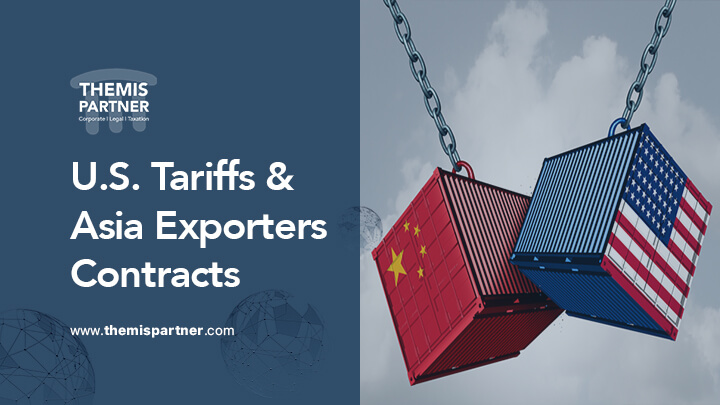Market Research and Analysis: Key Steps for Successful Business Expansion
Market research and analysis are critical steps for ensuring a successful business expansion into Asia. Conducting thorough market research helps businesses gain valuable insights into the target market, understand customer preferences, and identify potential challenges and opportunities.
The first step is to assess the market size, growth potential, and competition in the specific Asian countries or regions of interest. This involves gathering data on consumer demographics, purchasing power, and market trends. It is also important to understand the cultural, economic, and regulatory factors that influence business operations in each market.
Additionally, businesses should conduct a competitive analysis to identify key competitors, their market share, and their strategies. This analysis helps in positioning the business and developing effective differentiation strategies.
Another crucial aspect is understanding the consumer behavior and preferences in the target market. This involves conducting surveys, focus groups, or leveraging existing market research reports to gather insights into the local consumer mindset, purchasing habits, and preferences.
Lastly, it is essential to assess the legal and regulatory landscape, including tax laws, import/export regulations, and intellectual property rights protection. This helps businesses comply with local regulations and avoid any legal hurdles.
By investing in comprehensive market research and analysis, businesses can make informed decisions, tailor their strategies, and increase the likelihood of a successful expansion into Asian markets.
Navigating Legal and Regulatory Frameworks: Strategies for a Smooth Expansion into Asian Markets
Navigating the legal and regulatory frameworks is crucial for a smooth business expansion into Asian markets. It is essential to thoroughly research and understand the specific laws, regulations, and requirements of each target country or region.
Developing a strong network of local legal and compliance professionals can provide valuable guidance and ensure compliance with local laws. Engaging local legal counsel can help navigate complex regulations and mitigate potential risks.
Another strategy is to proactively engage with government authorities and regulatory bodies. Building relationships and seeking guidance from these entities can help in understanding the regulatory landscape and staying updated on any changes or new requirements.
Additionally, conducting regular compliance audits and implementing robust internal controls can ensure adherence to legal and regulatory frameworks. This includes areas such as tax compliance, intellectual property rights, employment laws, and data protection regulations.
By adopting these strategies and staying informed about the legal and regulatory requirements, businesses can navigate the complexities of Asian markets, reduce legal risks, and achieve a smooth expansion.
Get the legal advice you need to navigate the complexities of the region's legal landscape.
310 client reviews (4.8/5) ⭐⭐⭐⭐⭐
Adapting Your Business Model: Tailoring Strategies for Success
Adapting your business model is crucial for success when expanding into Asian markets. It involves tailoring your strategies to meet the unique needs and preferences of the target market.
Understanding the local market dynamics, consumer behavior, and cultural nuances is essential. This knowledge helps in adjusting product offerings, pricing strategies, marketing messages, and distribution channels to align with the preferences of Asian consumers.
Localization is key. Translating marketing materials, websites, and product descriptions into the local language can enhance customer engagement. Adapting packaging, product features, and design to suit local tastes can also contribute to market acceptance.
Furthermore, forming strategic partnerships with local companies or leveraging local distributors can provide valuable insights and facilitate market entry. Collaborating with local entities can help navigate the business landscape, establish credibility, and access distribution networks.
Localization: Essential Factors for Successful Business Expansion
Localization is a vital factor for successful business expansion in Asia. It involves adapting products, services, and marketing strategies to suit the specific preferences and cultural nuances of the local market.
Effective localization goes beyond language translation and takes into account cultural, social, and behavioral aspects. It involves customizing product features, packaging, pricing, and distribution channels to align with local preferences.
Understanding the local consumer mindset and tailoring marketing messages and branding accordingly can significantly improve customer engagement and brand perception. Localization also extends to customer support, ensuring that communication channels, customer service practices, and after-sales support are tailored to meet the needs and expectations of the local market.
By investing in localization efforts, businesses can demonstrate their commitment to the local market, build stronger customer relationships, and increase their chances of success in Asia.
Building Strong Partnerships: Collaborating with Local Entities for Successful Business Expansion
Building strong partnerships with local entities is a crucial strategy for successful business expansion into Asia. Collaborating with local suppliers, distributors, or strategic partners can provide valuable market insights, access to local networks, and help navigate cultural nuances and regulatory requirements.
Establishing trust and fostering mutually beneficial relationships with local partners is key. This involves investing time in relationship-building activities, understanding their business practices and expectations, and adapting communication styles to align with the local context.
By collaborating with local entities, businesses can leverage their expertise, local knowledge, and established networks to navigate the complexities of the Asian market. Strong partnerships enable businesses to gain a competitive advantage, enhance market penetration, and increase the likelihood of success in their expansion efforts.









